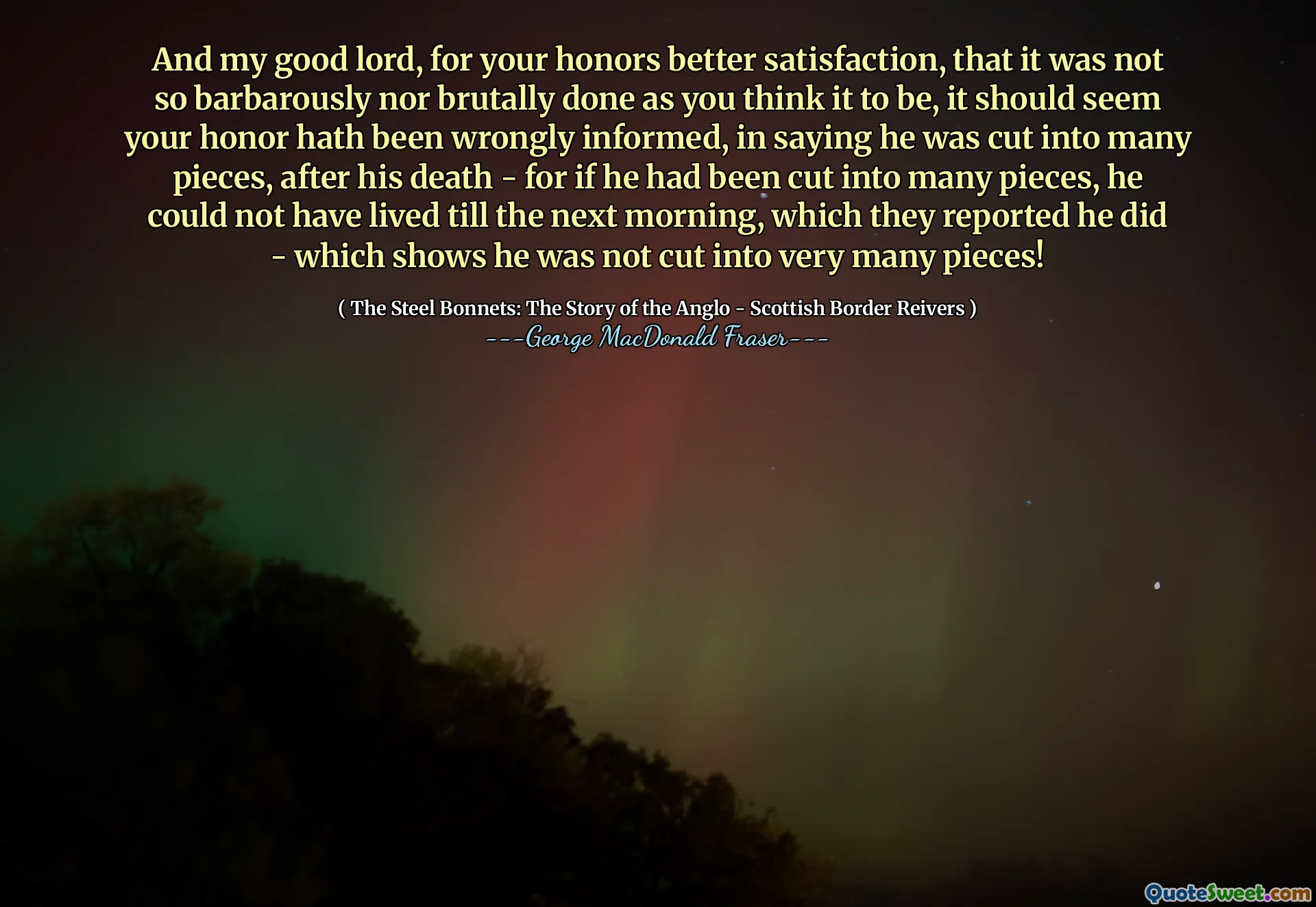
And my good lord, for your honors better satisfaction, that it was not so barbarously nor brutally done as you think it to be, it should seem your honor hath been wrongly informed, in saying he was cut into many pieces, after his death - for if he had been cut into many pieces, he could not have lived till the next morning, which they reported he did - which shows he was not cut into very many pieces!
This quote highlights the importance of not accepting rumors without scrutiny, especially in turbulent times where stories of violence and cruelty often circulated. It reflects a situation where someone defends another's reputation by arguing against perceived barbarity, emphasizing the unwarranted nature of a certain accusation. The speaker seeks to reassure their lord that the supposed mutilation—being cut into many pieces—was either exaggerated or entirely inaccurate, using logical reasoning that if the victim had indeed been severed into multiple parts, survival would have been impossible. The assertion that the individual was still alive the next morning serves as evidence to counter claims of overly brutal actions.
From a broader perspective, this quote underscores themes of truth, perception, and the human tendency to embellish or distort events, especially in the context of conflict or societal chaos. In historical settings, tales of brutality often spread rapidly, possibly to fan fears or justify certain actions. Therefore, the speaker's appeal to tangible evidence—the survivor’s longevity—illustrates a reliance on observable facts over hearsay.
The quote also exemplifies a form of advocacy or defense during times of uncertainty and conflict. It reminds us that proper understanding requires examining evidence carefully rather than just accepting damaging reports at face value. Whether in historical instances or present-day debates, such discernment remains crucial in assessing truth and fairness. The underlying message is a call for caution against misinformation and an acknowledgment of the complexity inherent in judging events: truth is often elusive, and words may distort reality.
In literature and historical recounts, such moments serve to remind us of the fragility of reputation and the importance of reasoned judgment amidst chaos, as well as the enduring human need to seek the truth behind the stories that circulate around us.






